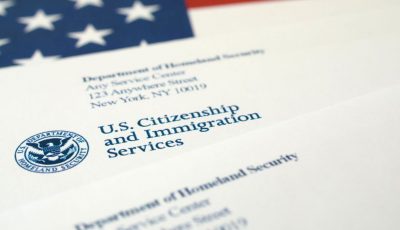CUC, 18 CW-1 workers withdraw motion for injunctive relief vs USCIS
The Commonwealth Utilities Corp. and 18 of its foreign workers are withdrawing their motion for injunctive relief against federal officials over the delayed renewal of their Commonwealth-only worker, or CW-1 permits.
CUC and the 18 foreign workers, through counsel James S. Sirok, filed on Monday in federal court a notice of withdrawal of their motion for injunctive relief. They asked the court to vacate the hearing on the matter set for Jan. 21.
When asked to clarify their notice of withdrawal, Sirok said yesterday that the case is not dismissed because he only withdrew the motion for injunctive relief as it is no longer needed.
Sirok said their request was based on their need for immediate and preliminary injunctive relief related to the CW-1 workers’ ability to work for CUC during the pendency of U.S. Citizenship and Immigration Services’ review of their CW-1 petitions for the renewal of their CW-1 statuses.
Sirok said the plaintiffs no longer need this injunctive relief.
Sirok told the court that Homeland Security Secretary Jeh Charles Johnson and his co-defendants, through their respective counsels, have informed CUC and the CW-1 workers that they do not object to the withdrawal of the motion and to the court vacating the hearing.
Earlier on Thursday, U.S. District Court for the NMI Chief Judge Ramona V. Manglona said the court will advance the trial on the merits and consolidate it with the hearing on the plaintiffs’ motion for a preliminary injunction on Jan. 21.
Manglona earlier denied the request of CUC and 18 of its foreign workers for a temporary restraining order that would allow these CW-1 workers to immediately return to work. She said, though, that the plaintiffs may still pursue their claim for a permanent injunction.
On Thursday, Sirok filed an amended complaint against the same defendants—Johnson, Immigration and Customs Enforcement Director Sarah Saldana, and U.S. Citizenship Director Leon Rodriguez—to add a claim that plaintiffs are able to work after the expiration date of their respective authorizations so long as the authorizations remain valid in accordance with law.
Sirok said when the CW-1 petitions for the workers were approved, the CW-1 plaintiffs acquired the status of CNMI-only transitional worker for the period of time their approved petitions are valid.
Sirok said the approval of the petitions and the resulting authorized grant of CW-1 status to each of the workers is an authorization that allows each of them to enter and work in the CNMI.
The amended complaint retains the plaintiffs’ two original claims—that the position of USCIS violates the Administrative Procedure Act and that the position by DHS and USCIS violates Article II, Section 3 constitutional obligation of the executive to take care that the laws are faithfully executed.
In the defendants’ opposition to the TRO and injunction, the U.S. Attorney’s Office said CUC filed its petitions for an extension of the workers’ status only last Dec. 28—a mere three days prior to the expiration of their nonimmigrant status.



























